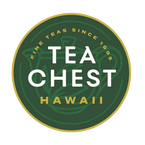
Top Tea Options For Winter Sipping
Top Tea Options For Winter Sipping
As the cold weather rolls in, there's a natural inclination to drink something warm. A steaming cup of hot tea can provide a comforting embrace, and it can also deliver plant-based nutrients that can keep you well and feeling good through winter.
Winter weather makes it easy to feel a bit down and sluggish, and there are a few reasons for that. As daylight decreases, we receive a reduced amount of sunlight, potentially disrupting the balance of mood-regulating chemicals in our brain. Also, it's colder outside, making us less likely to go out and move around. Exercise keeps us active and can help with our mood so we feel better. The holiday season, while fun, can also bring stress. All these things combined create what some call a "winter slump," where we miss the warmth and energy of sunnier times. According to the National Institute of Health (2023) seasonal mood changes are common, with many individuals feeling a bit low during fall and winter, only to bounce back with the arrival of spring.
Surprisingly, sipping on tea during winter comes with extra perks. In the midst of increasing joint discomfort, a lack of energy, and the need to bolster our immune systems in the colder months, hot tea can become our cold season companion. Packed with antioxidants like catechins and polyphenols, it doesn't just soothe winter blues; it actively tackles winter well-being, joint pains, boosts energy levels, and enhances immunity. So, that cozy cup of tea isn't just about warmth—it's a genuine winter wellness companion.

Teas to Lift Your Mood During Winter
Tea, especially varieties high in antioxidants like polyphenols, can play a role in alleviating the cold weather slumps by offering potential mood-enhancing effects and providing nutritional benefits. Research from The National Library of Medicine (2019) suggests that a lack of antioxidants in our diet, found in foods like fish, green tea, and vitamins, may be linked to feelings of depression. Substances like polyphenols in green tea could have a positive effect on reducing the risk of depression, and the article even hints at their potential contribution to the development of safer antidepressant medications. So, enjoying a cup of tea, rich in these natural elements, might be a simple and safe way to lift your spirits during the cold winter months.
It's important to note that the specific antioxidants and their concentrations can vary among tea varieties. Incorporating a variety of these teas into your routine can be a flavorful and enjoyable way to boost your antioxidant intake and potentially uplift your mood during the colder months. Here are some options that are known for their high antioxidant content.
Options:
- Green Tea - Japanese Sencha, Organic Matcha, Jasmine Pearls
- Black Tea - Darjeeling First Flush, Masala Chai
- Oolong Tea - Jade Pouchong, Honey Oolong
- Herbal Tea - Lemon Mamaki, Lemon Chamomile
Best Tea for Hydration
The relationship between hydration and mental well-being becomes especially intriguing for those grappling with the winter blues. Contrary to concerns about the potential dehydration caused by the caffeine in tea, a study published in the National Library of Medicine (2011) has shown that black tea, even with caffeine, is comparable to water in maintaining proper hydration levels. Adding to this, research highlighted in The World Journal of Psychiatry (2018) has emphasized a strong link between consuming less than two glasses of water daily and an increased risk of depression and anxiety. This connection, particularly pronounced in relation to depression, underscores the vital importance of maintaining adequate hydration during the winter. Tea, with its hydrating properties, emerges not just as a comforting beverage but also as a supportive element for mental well-being during the colder months.
Options:
- Green Tea - Organic Green Tea
- Black Tea - Passionfruit Paradise
- White Tea - Pineapple Strawberry
- Caffeine Free Tea - Coconut Rooibos
- Tea Bags - Nanea, Mango Peach
Immune System Booster
In the realm of immunity support during winter, green tea stands out as a formidable ally. Rich in antioxidants, especially catechins, hot green tea becomes a valuable asset for overall immune system reinforcement, bolstering the body against seasonal threats. Referencing Penn State Medicine (2022), the age-old use of natural compounds like phytochemicals found in plants, such a tea, is highlighted for immune system support. Green tea, with its modern accessibility, emerges as a powerhouse offering benefits beyond immune enhancement, including support for cardiovascular health and heightened mental alertness.
Hibiscus has also been indicated by laboratory studies, to exhibit antibacterial properties, with various bacteria strains associated with infections. “A cup of ruby red hibiscus tea not only warms the body in winter but also is known to boost the immune system, control blood pressure, and reduce body weight” according to Technology Networks Biopharma. Integrating hot teas like Mana for Immunity and Hibiscus Bliss, into your daily routine could not only provide a flavorful experience but also serves as an effective means to fortify your immune system and brighten your mood amid colder temperatures.
Options:
- Tea Bags - Mana for Immunity, Hibiscus Bliss, Mango Peach
- Green Tea - Organic Matcha Green Tea Powder
- Loose Tea - Pure Mamaki, Yin Zhen Silver Needles
Anti-Inflammatory Drinks
Because we’re indoors and spend more time is smaller spaces during winter, stiffness, inflammation and maybe some soreness can creep in. A comprehensive study conducted in 2012 by The Journal of Advanced Pharmaceutical Technology and Research delved into the potential anti-inflammatory effects of green tea and black tea extracts. The research revealed the remarkable effectiveness of both teas in combating inflammation. Notably, green tea emerged as a standout contender, thanks to its impressive performance attributed to the rich presence of flavonoids. These compounds not only contribute to the delightful taste of green tea but also position it as a promising defense against inflammation associated with winter.
Furthermore, turmeric tea, becomes another soothing ritual for alleviating cold weather joint pain. The efficacy of turmeric lies in its potent anti-inflammatory properties, making it a valuable ally during the colder months. According to Medical News Today, the main component of turmeric is curcumin, responsible for its distinctive yellow hue. Scientifically demonstrated, curcumin possesses notable anti-inflammatory and immune-enhancing qualities. Incorporating green tea and turmeric tea into winter routines not only adds warmth but also provides a potential shield against inflammation exacerbated by winter challenges.
Options:
- Turmeric Tea - Olena Loose Tea
- Ginger Tea
- Black Tea - Lilikoi Cacao
- Green Tea - Organic Green Tea. Jasmine Mamaki Green Tea
- Tea Bags - Olena for Inflammation, Maui Earl Grey
Hibiscus Tea for Heart-Healthy Enjoyment During Winter
Maintaining cardiovascular health is crucial, especially in colder weather, according to The American Heart Association. Cold weather poses risks to the heart, causing vasoconstriction and extra strain during exercise, leading to worsened symptoms for individuals with existing heart conditions. Research indicates a higher likelihood of heart attacks and strokes in extended cold spells, particularly affecting those with coronary heart disease.
For heart-healthy options, hot hibiscus teas, including our products Mana and Hibiscus Bliss, are recommended due to their association with lower blood pressure levels and antioxidant-rich composition supporting vascular health. A recent study in Nutrition Reviews found that hibiscus consumption positively affects blood pressure and lowers cholesterol compared to other teas. Regular consumption of these hot teas, including our Mana and Hibiscus Bliss, can provide a protective layer to the cardiovascular system, making them valuable allies during the winter.
Options:
- Herbal Tea- Mana for Immunity, Hibiscus Bliss Tea Bags, Hibiscus Bliss Loose Tea
Tea and Digestion
Cold weather can often bring about multiple factors that can contribute to our gastrointestinal issues. According to Gastroenterology of Greater Orlando, consumption of unhealthy, processed foods, elevated stress levels, reduced sleep, decreased water intake, lack of exercise, decreased metabolism, and boredom during the winter could be considered key contributing factors. They recommend limiting the consumption of carbonated drinks and opt for alternatives like “juices, tea, and flavored water.” Tea, being a non-carbonated and warm beverage, can be beneficial for the digestive tract, and its warmth may contribute to warmer body temperature which aids digestion.
Gastroenterology of Greater Orlando also highlights the positive impact of herbs and spices on digestive well-being during the winter months. Teas like Olena and Marsala Chai are recommended as excellent natural beverages to enhance digestive health in winter, incorporating key natural additives such as turmeric, ginger, and chamomile, known for their digestive-stimulating properties. Olena tea, featuring turmeric, is recognized for its anti-inflammatory and digestion-boosting qualities. Masala Chai, with its blend of spices including cardamom and cinnamon, not only adds flavor but also offers potential digestive benefits. According to Gastroenterology of Greater Orlando, including such beverages in your winter choices promotes digestive well-being through the consumption of herbal and spiced drinks.
Options:
- Black Tea - Masala Chai, MW Coconut Chai
- Turmeric Tea - Olena for Inflammation
- Herbal Tea - Ginger Tea, Lemon Chamomile, Olena for Inflammation Loose Tea
Hot Drinks With Less Caffeine
Coffee, tea, and hot chocolate are common hot drink options but what if you’re sensitive to caffeine or try to avoid it after a certain time of day? Caffeine can be found in green and black tea but not in herbal teas and decaf teas. Here are some tasty caffeine-free options.
Options:
- Loose Decaf Tea - Passionfruit Decaf , Mango Decaf , Pineapple Decaf, Strawberry Hula Decaf
- Loose Tea- Chamomile, Mamaki
- Tea Bag - Lemon Chamomile, Mint Mamaki, Nanea, Mahina
Conclusion
As winter unfolds its frosty wonders, let hot tea be your constant companion. Whether you're seeking warmth, flexibility, a boost in antioxidants, or simply a moment of tranquility, hot tea has the power to transform your winter experience. Embrace the season with open arms, a cozy blanket, and a cup of your favorite hot tea—because in the world of hot tea, winter is a season to be celebrated. So, sip, savor, and let the comforting embrace of hot tea be your guide through the enchanting winter months.
Written by Cheri Mula and Byron Goo
Resources
https://www.nimh.nih.gov/health/publications/seasonal-affective-disorder
https://www.ncbi.nlm.nih.gov/pmc/articles/PMC6769512/
https://pubmed.ncbi.nlm.nih.gov/21450118/
https://www.ncbi.nlm.nih.gov/pmc/articles/PMC6147771/
https://www.pennmedicine.org/updates/blogs/health-and-wellness/2019/december/health-benefits-of-tea
https://www.ncbi.nlm.nih.gov/pmc/articles/PMC3401676/
https://greaterorlandogi.com/2023/01/30/how-can-i-improve-my-digestion-in-cold-weather/
https://www.medicalnewstoday.com/articles/319638
https://www.ncbi.nlm.nih.gov/pmc/articles/PMC9086798/
https://greaterorlandogi.com/2023/01/30/how-can-i-improve-my-digestion-in-cold-weather/


Leave a comment